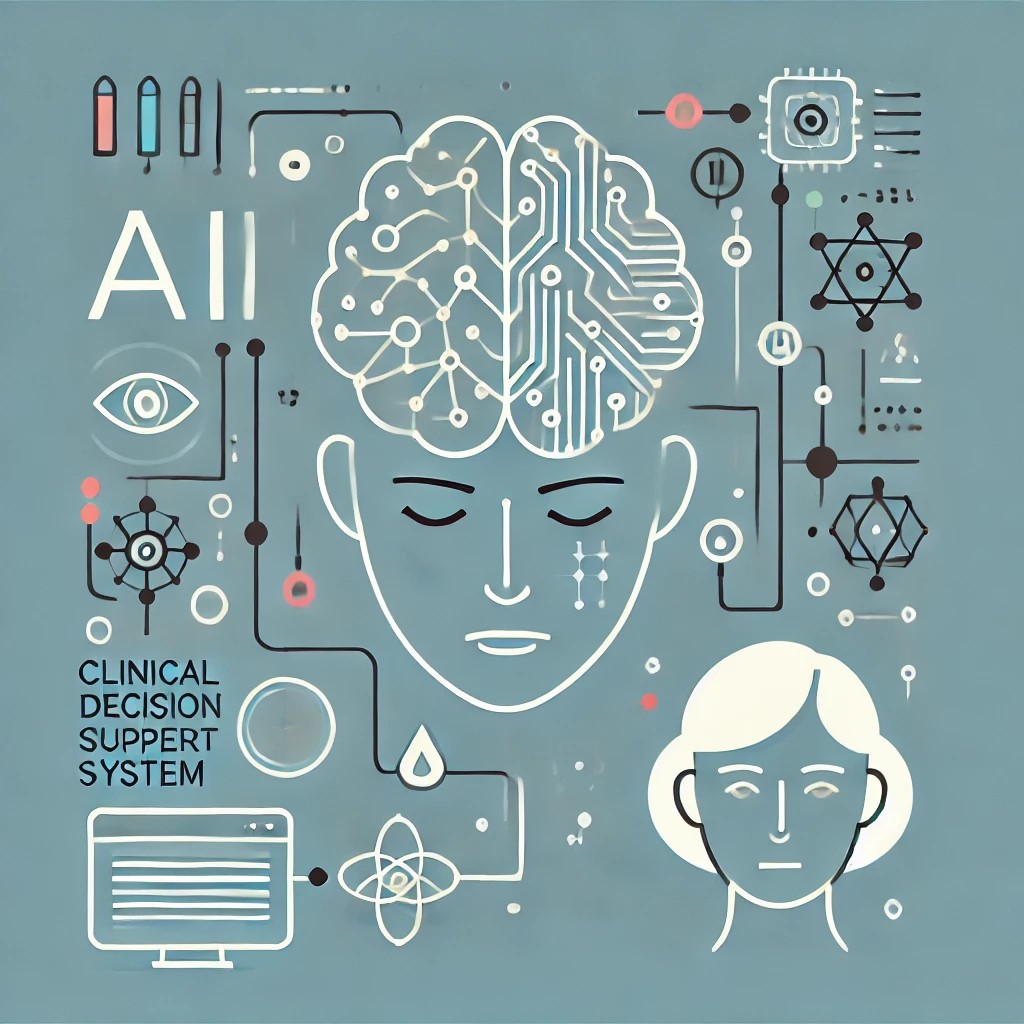Blog posts
Transforming the Management of Mild Cognitive Disorders and Dementia through AI-enhanced CDSS
Published on 6 March 2025

The rise of Artificial Intelligence (AI) in healthcare brings the potential for managing neurodegenerative conditions, particularly mild cognitive disorders and mild dementia [1]. Clinical Decision Support Systems (CDSS) enhanced with AI capabilities are dignified to revolutionise early detection and intervention, which are crucial for these conditions.
Early Detection and Continuous Monitoring
One of the most promising aspects of AI in CDSS is its ability to aid in the early detection of mild
cognitive disorders and dementia [2]. AI algorithms can analyse subtle patterns in patient data, such
as changes in speech, memory lapses, and even minor alterations in routine behaviours that might elude
even skilled clinicians. This early detection is critical , as it allows for the initiation of care
plans and interventions at a stage where they can significantly slow the progression of the disease.
Personalised Care Plans
AI-driven CDSS can also personalise care and management plans for individuals [3] with cognitive
disorders. By integrating data from various sources, including demographic and genetic information,
lifestyle factors, and ongoing patient monitoring, AI can help healthcare providers adapt interventions
that are most likely to benefit the patient. This personalised approach not only enhances the efficacy
of treatments but also helps in optimising resource allocation within healthcare settings.
Enhancing Patient Engagement and Empowerment
For patients experiencing the early stages of cognitive decline, maintaining engagement with their
healthcare process is essential. AI-enhanced CDSS can provide tools that keep patients engaged and
compliant with their care plans [2]. These might include automated reminders for medication,
appointments, cognitive exercises and educational materials, all tailored to fit the patient’s
individual schedule and needs.
Supporting Caregivers
Caregivers of patients with mild cognitive disorders and dementia can also benefit from AI-driven
CDSS [4]. These systems can provide caregivers with critical updates on the patient's condition,
suggest adjustments to care plans based on real-time data, and offer support through supporting
resources and coping strategies. This not only helps in managing the patient’s condition more
effectively, but also lessens some of the stress associated with caregiving.
Ethical and Privacy Considerations
Implementing AI in the management of cognitive disorders involves navigating complex ethical and
privacy issues. Ensuring the protection of sensitive patient data and addressing potential biases
sin AI algorithms are crucial to building trust and efficacy in these advanced tools [5].
CAREPATH Project: A Case Study in Utilising CDSS in patients with MCI and mild dementia integrated
care management platforms
The CAREPATH project [6] (carepath.care) exemplifies how new technologies, like machine learning, and integrated guidelines [7] can be integrated into healthcare systems to manage mild cognitive disorders and dementia effectively. This programme focuses on using these technologies to enhance CDSS by providing:
- Predictive Insights: Using machine learning algorithms and models to predict patient outcomes, enabling proactive management of conditions.
- Decision Support: Offering clinicians data-driven guidance to optimise care strategies and interventions.
- Patient-Centric Solutions: Ensuring that the technology addresses real-world needs, facilitating better patient outcomes through tailored care plans.
CAREPATH's approach illustrates the practical application of the new generation of CDSSs in healthcare, showcasing the benefits of these technologies in real-world settings. By focusing on patient-centric solutions, CAREPATH highlights the potential of AI to not only support clinical decisions but also to empower patients and caregivers through more informed, data-driven care strategies.
Conclusion
As AI technology continues to advance, its integration into CDSS offers a sign of hope for improving
the detection and management of mild cognitive disorders and dementia. With its ability to enhance
early detection, personalised care plans, support caregivers, and engage patients, AI stands as a
key element in transforming the landscape of neurodegenerative disease management.
References
- Rajaraman S. Artificial Intelligence in Neuro Degenerative Diseases: Opportunities and Challenges. AI and Neuro-Degenerative Diseases: Insights and Solutions. 2024:133-53.
- Andargoli AE, Ulapane N, Nguyen TA, Shuakat N, Zelcer J, Wickramasinghe N. Intelligent decision support systems for dementia care: A scoping review. Artificial Intelligence in Medicine. 2024:102815.
- Jung IC, Zerlik M, Schuler K, Sedlmayr M, Sedlmayr B. User-Centered Development of Explanation User Interfaces for AI-Based CDSS: Lessons Learned from Early Phases. Stud Health Technol Inform. 2024;316:570-4. doi: 10.3233/SHTI240478. PubMed PMID: 39176806.
- Borna S, Maniaci MJ, Haider CR, Gomez-Cabello CA, Pressman SM, Haider SA, et al. Artificial intelligence support for informal patient caregivers: A systematic review. Bioengineering. 2024;11(5):483.
- Habibi F, Ghaderkhani S, Shokoohi M, Banari T, Morsali M, Abadi RNS, et al. Harnessing artificial intelligence in Alzheimer's disease management: navigating ethical challenges in AI. AI and Ethics. 2025:1-17.
- Pournik O, Ahmad B, Lim Choi Keung SN, Khan O, Despotou G, Consoli A, et al. CAREPATH: Developing Digital Integrated Care Solutions for Multimorbid Patients with Dementia. Stud Health Technol Inform. 2022;295:487-90. doi: 10.3233/SHTI220771. PubMed PMID: 35773917.
- Gencturk M, Laleci Erturkmen GB, Akpinar AE, Pournik O, Ahmad B, Arvanitis TN, et al. Transforming evidence-based clinical guidelines into implementable clinical decision support services: the CAREPATH study for multimorbidity management. Front Med (Lausanne). 2024;11:1386689. Epub 20240527. doi: 10.3389/fmed.2024.1386689. PubMed PMID: 38860204; PubMed Central PMCID: PMC11163046.
 This project has received funding from the European Union’s
Horizon 2020 research and innovation programme under grant
agreement No 945169
This project has received funding from the European Union’s
Horizon 2020 research and innovation programme under grant
agreement No 945169